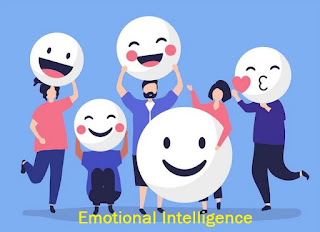What Is Emotional Intelligence (EQ), Emotional Intelligence Test
What is Emotional Intelligence?
Understand the difference between emotional intelligence and intellectual intelligence. How do you explain the dichotomy of an average student making a name for himself and a brilliant student failing to do so?
Will the academic background assure that the child grows up into a well-adjusted man who can handle all the issues that keep cropping up in life?
Can it be easily explained?
Probably not! Nevertheless, this takes us to the evolution of a different mindset – Emotional Intelligence(EQ). Are you emotionally literate? I am not suggesting that academic achievements are not important. For sure, academic achievements are not going to go out of fashion.
However, it has been proven repeatedly that the person with the highest IQ is not necessarily the one who does well in life.
Why is EQ an emerging concept?
It is an interesting concept because it draws attention to the limitations of IQ and the value of other kinds of abilities and attributes for success in life.
Therefore, the first thing to do is to understand the difference between emotional and intellectual intelligence.
You operate by two minds:
1. A rational mind:
Which is the conscious mind, relatively emotion- free, operates according to logical inference, and can be controlled.
2. An experiential mind:
Which is the automatic mind, associated with emotions and past experiences, operates at a preconscious level, and cannot be easily controlled.
The combined influence of the two minds determines your behavior
The rational and the experiential minds provide different ways of solving problems, each has its own form of intelligence.
The intelligence of the rational mind is measured by IQ tests.
The intelligence of the experiential mind includes practical intelligence, social intelligence and emotional intelligence.
However, emotional mind adapts to the world by learning directly from experience
If you learn to control the experiential mind, it would put you in a helpful position.
The problem is that the desires and beliefs in the experiential mind do not correspond to those in the rational mind. Therefore, rational efforts are of no use, irrespective of your intellectual intelligence.
In other words, EQ is based on the constructiveness of the underlying thoughts.
If your automatic thoughts are constructive and apt, so will be your emotions. Remember the thoughts underlying emotions are preconscious, automatic, and hence not very easy to control.
Note that the emphasis here is on thoughts that underlie emotions. Daniel Goleman assumes that emotions come before thoughts.
For now, allow me to conclude that:
- Specific kinds of thoughts precede and determine emotions.
- These thoughts occur automatically.
- Constructive thinking underlies emotional intelligence.
- If you automatically think constructively, you will exhibit EQ and if you do not, then it is difficult to display it.
The presumed components of EQ are:
Ability to discern emotions in others
To feel empathy
To delay gratification
To control one’s own emotions
To exhibit social competence
To be emotionally well adjusted and not suffer from depression, anxiety attacks, and uncontrolled hostility.
That is an article about What Is Emotional Intelligence (EQ), Emotional Intelligence Test. Hopefully, it will usefull to you.

Post a Comment for "What Is Emotional Intelligence (EQ), Emotional Intelligence Test"